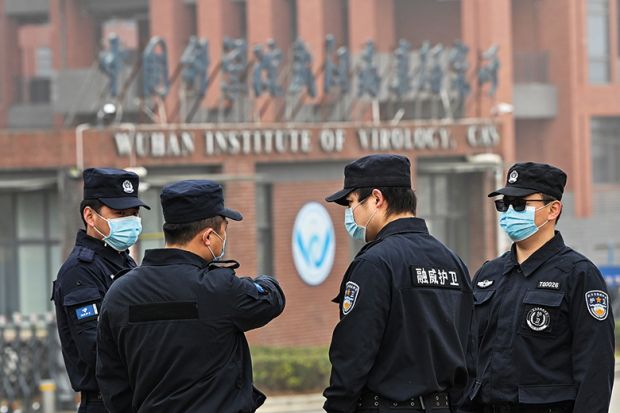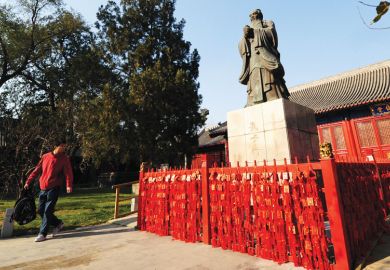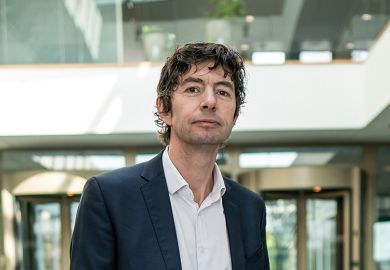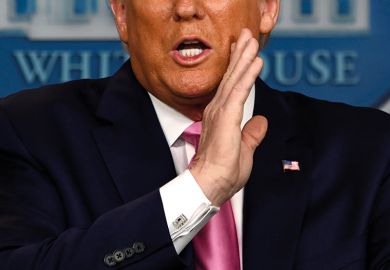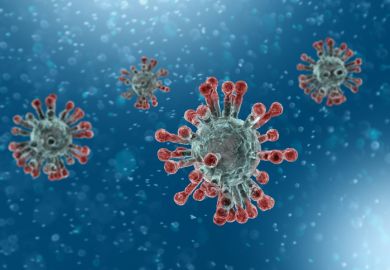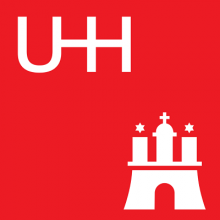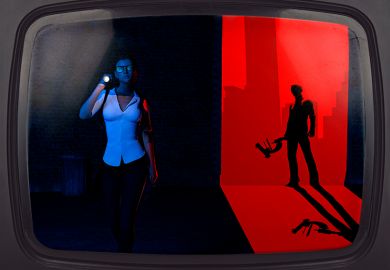The University of Hamburg has been accused of damaging trust in science after it officially promoted a non-peer-reviewed “study” by a nanoscientist arguing that the coronavirus that causes Covid-19 was engineered in the Wuhan Institute of Virology and then escaped by accident.
The 100-plus page analysis by eminent Hamburg professor Roland Wiesendanger, which draws on everything from peer-reviewed papers to YouTube videos to advance its argument, was released last month on to the ResearchGate platform.
It was publicised by university press releases in German and English trumpeting “numerous significant indications” that the pandemic resulted from a laboratory accident and calling for a “broad and open conversation”, with the caveat that the work did not contain any “science-based proof”.
The following day, the “study” conclusions found their way on to the front page of Germany’s most-read newspaper, the tabloid Bild, under the headline “German professor is certain: corona was a lab accident in China”.
But there have been weeks of backlash against Hamburg for lending authority to an analysis that critics say contains little new information and was not peer-reviewed.
“It’s not a scientific study,” said Volker Stollorz, chief editor of Germany’s Science Media Center. “It’s a kind of journalistic potpourri. I don’t understand why this was put out as an official press release by the university.”
Hamburg’s decision earned the institution a rebuke from Germany’s Association of University Communications as well as a warning from the city’s science minister that called for “restraint” when the science is “unclear”. Hamburg’s General Students’ Committee even accused Professor Wiesendanger of “playing into the hands of conspiracy theorists” and “stoking anti-Asian racism”.
Last week, Hamburg’s president, Dieter Lenzen, doubled down on the decision to promote Professor Wiesendanger’s investigation in a message to staff. “It is better to open up a questionable hypothesis for discussion than to suppress one that ultimately proves correct,” a spokeswoman for the president told Times Higher Education, adding that it was the “duty” of the university to raise questions about the “security and moral integrity of scientific research”.
According to Professor Wiesendanger, the president personally approved the release. “A press release via the university press office of this kind of importance obviously had to be authorised by our university president,” he told THE.
Professor Wiesendanger, who worked on his analysis for the entirety of 2020, argued that identifying the origin of the Sars-CoV-2 coronavirus was likely the most pressing scientific question around. He also claimed that scientists had received “unfair” media criticism when they “brought up critical questions” about the issue.
An international team of scientists has been in China investigating the origins of the pandemic under the auspices of the World Health Organisation. A full report was expected this month, but members of the team have said the lab leak hypothesis is “extremely unlikely”, even if it cannot be ruled out entirely. Investigators last month admitted that they lacked the power to conduct a formal audit of the Wuhan Institute of Virology.
In the dying days of the Trump administration, the US accused Beijing of withholding “vital information” about the virus’ origins and raised a series of questions about research at the institute.
The problem for scientists, said Mr Stollorz, was that the lab leak hypothesis had been tarnished by association with “Trump-style anti-China bashing”.
“Many scientists feel it’s more difficult to ask these tough questions,” he said, even though investigating a potential lab accident remained a “very serious question”.
Register to continue
Why register?
- Registration is free and only takes a moment
- Once registered, you can read 3 articles a month
- Sign up for our newsletter
Subscribe
Or subscribe for unlimited access to:
- Unlimited access to news, views, insights & reviews
- Digital editions
- Digital access to THE’s university and college rankings analysis
Already registered or a current subscriber?
